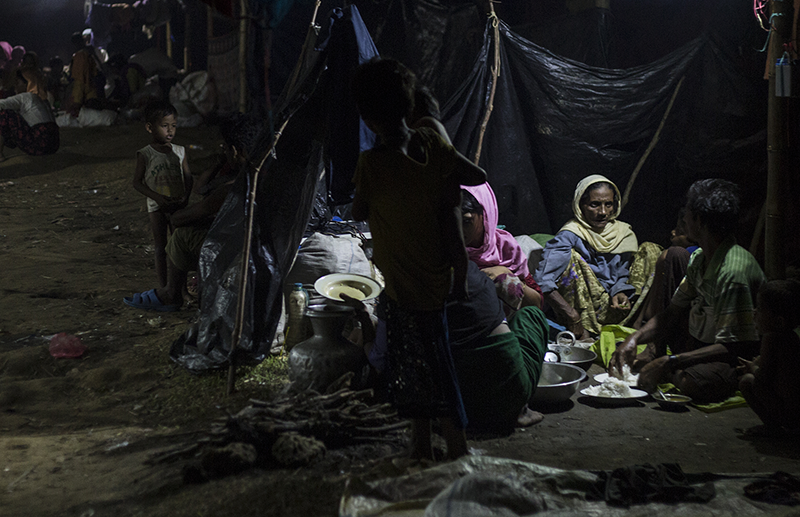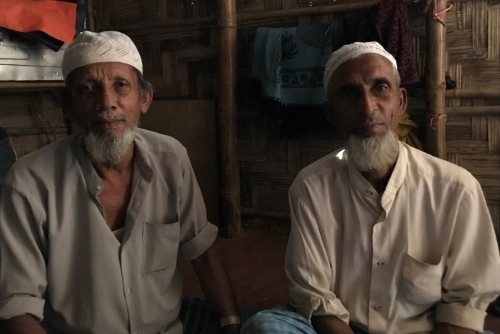– Hotiza, a woman around 85 years old
Dear John,
Today is a special day of unity and giving. It’s called Giving Tuesday Now – a global response to the unprecedented need caused by the COVID-19 pandemic.
Your gift will have double the impact towards funding urgent and emerging human rights work, including that related to the COVID-19 pandemic. It will help us respond quickly to protect those most at risk during this crisis, including older Rohingya refugees.
Wash your hands. Practice physical distancing. We all know the advice of public health officials and what they’re recommending to stop the spread of COVID-19.
But imagine if you didn’t have access to even this basic information. The authorities have cut off telecommunications and the internet and you’re excluded from local information sharing.
Imagine you’re also at high risk due to your age, lack of access to water and sanitation and cramped living conditions. You’ve heard something is coming and you don’t know what to do.
“I didn’t hear any new things, just people are saying, ‘A disease is coming, pray’” – Abdu Salaam, 70
This is a photo of Mohammed Ali and Soyed Alom, two remarkable Rohingya refugees I interviewed last year with a research delegation to Bangladesh. When I think about the older Rohingya people I met, I'm struck by how much they've survived – decades of discrimination and persecution, fleeing from violence, living in overcrowded camps. And now they face COVID-19.
When our researchers recently spoke with refugees living in the camps, they found that older people were scared and lacking basic information about the pandemic.
Older people are often excluded from informal camp meetings due to physical constraints and have difficulty hearing megaphone announcements about the virus. Most had heard second-hand information, with little detail other than the virus was very dangerous, and they needed to “live clean”.
Your support means we can continue calling on governments, donors, and humanitarian organizations to put older people at the centre of their planning and response to crises like COVID-19. To include them and their needs, prioritize critical information sharing, and put preventative measures into practice.
Numerous marginalized communities face heightened vulnerabilities during this pandemic, and they must not be left out of the response. What the spread of this virus should teach us is that globally we are all connected, and we can all help one another – so let’s start today, on #GivingTuesdayNow.
In unity and solidarity,

Alex Neve
Secretary General
Amnesty International Canada
You received this email because you requested to be informed about opportunities to protect human rights.
If you do not wish to receive emails from Amnesty International, click here.
Amnesty International Canadian Section (English Speaking)
312 Laurier Avenue East, Ottawa, ON, K1N 1H9 1-800-AMNESTY (266-3789)
Charitable Registration # 11878 5914 RR0001
View Amnesty's privacy policy




